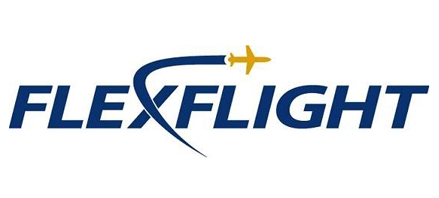FTC Aviation (FTC, Rimini) is set to unsuspend its Sammarinese AOC by the end of the year, most likely in September or October, as it plans its recovery from the impact of sanctions against Russia, chief executive Aleksandar Simić told ch-aviation in an exclusive interview.
“We remain the holder of the San Marino AOC, which I, as accountable manager, voluntarily suspended to ensure full compliance with Article 3 of Regulation 2022/334 of February 28, 2022,” he said, referring to regulations on restrictive measures on Russia relating to the war in Ukraine.
He added that although FTC was not listed on any sanctions list, the company faced severe export control restrictions from both the United States and the European Union.
Furthermore, Bombardier Aerospace restricted FTC’s access to certain subscription accounts, which led to flight safety non-compliance. Bombardier has had to suspend the accounts of some operators even though they are not specially designated nationals or blocked entities due to export control restrictions. Under these restrictions from the US and EU, Bombardier is prohibited from providing parts or technical assistance that could ultimately benefit Russia, and FTC was among the affected operators.
FTC Aviation was heavily impacted by the sanctions as it mostly managed aircraft owned by Russian nationals. “Before the Ukrainian crisis, FTC operated a fleet of 13 heavy jets, all under management. We had a strong presence in the Russian and CIS markets with 10 aircraft based at Moscow Sheremetyevo and three at Moscow Vnukovo. However, the crisis significantly impacted not only our operations but also the size of our fleet,” the CEO noted.
The company’s fleet currently consists of a sole Challenger 650, currently in maintenance and in preparation for operations set to start later this year. The aircraft, T7-MIN (msn 6119), was previously managed by Avcon Jet San Marino (VAJ, Rimini). ch-aviation fleets history data shows that ownership changed prior to the onset of the Ukrainian crisis.
“This timing played a significant role in facilitating its removal from Bombardier’s list of sanctioned aircraft under the ‘no ship, no service’ designation,” Simić said. “Our previous operation of a CL650 with a very close serial number, 6110, effectively made this aircraft its sistership. This similarity has significantly streamlined its induction into our operations, ensuring a smoother transition and optimised integration.”
The aircraft was initially delivered to Spec Energy in September 2018.
“Our remaining aircraft will be based at Dubai World Central Airport and will serve exclusive destinations. It will be primarily engaged in flights to luxurious locations such as the Maldives and Seychelles, catering to high-end travel demands,” Simić said.
The CEO went on to add that he expects another two aircraft may enter the fleet by the end of the year, a G650 and a Legacy 650.
Owner-focused business model
While FTC does formally operate charters, they are exclusively charters for the owners, their companies, and associates. “Rather than flying privately, the owners of aircraft operated and managed by us consistently opted for commercial flights - not only due to better airport operating hours and easier slot availability but also to take advantage of more favourable fuel pricing, among other operational benefits,” Simić explained.
He noted that FTC’s core business remains aircraft management but that recent crises pushed the company to strategically shift to consulting and standalone CAMO.
“In addition to our core operations, we have provided extensive aircraft purchase consulting, including PPI, and offered interim management for troubled operators in the Middle East region,” Simić said, adding that FTC’s Operational Control Center (OCC) has remained fully operational, allowing the company to offer dispatch services for other operators, particularly assisting with flight planning and dispatch for long-haul operations.
